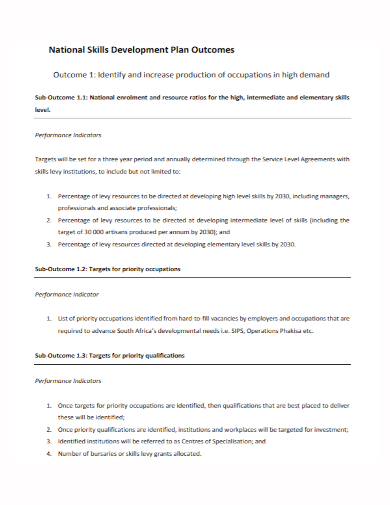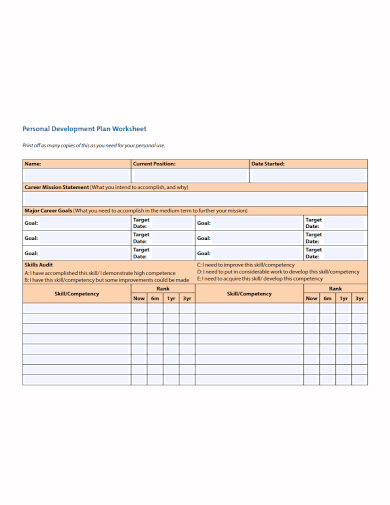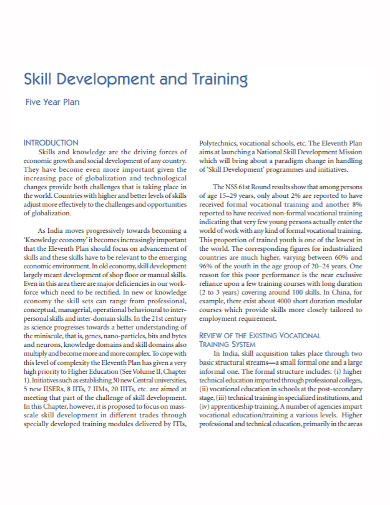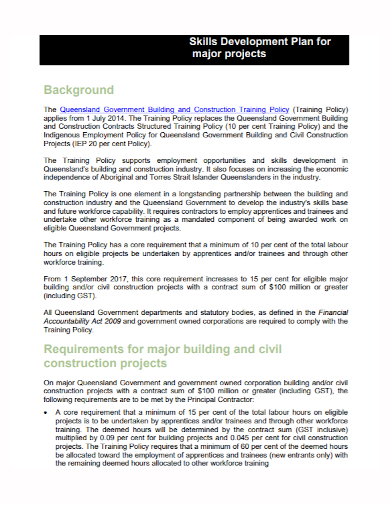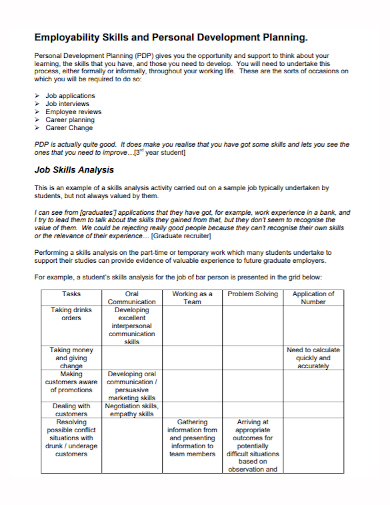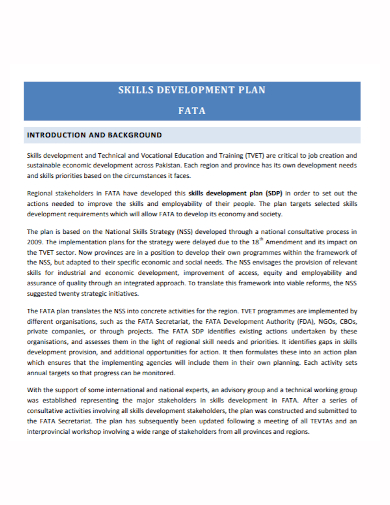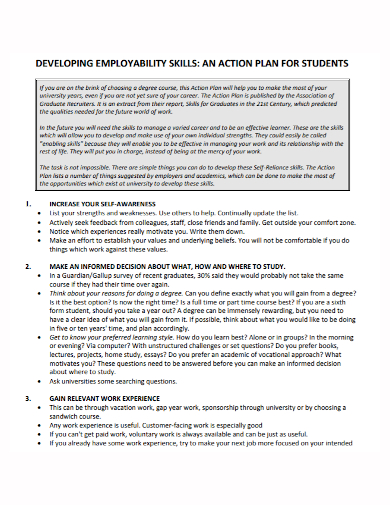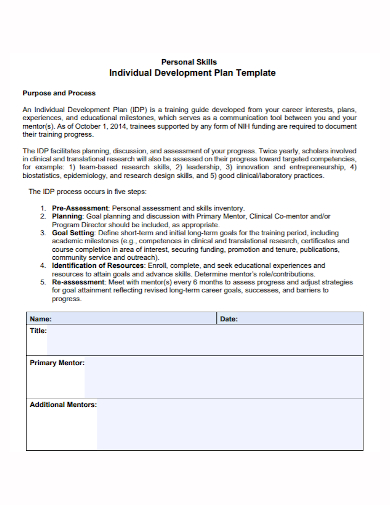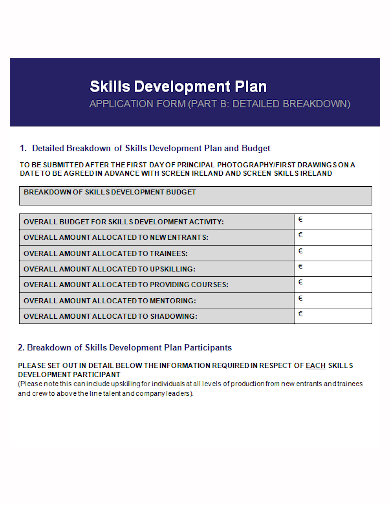Have you ever observed someone achieving their objectives with ease and wondered how they do it? This is where the development of skills comes in. What is the definition of skill development? The process of identifying your skill gaps and developing and honing these skills is known as skills development. It’s crucial because your abilities determine your ability to carry out your plans successfully. It’s the same with achieving goals. Your abilities are your tools for achieving your objectives. Your ultimate goal is to get into the house. You’ll need the necessary talents to achieve your goal, just as you’ll need the right tools to build a house. You will just frustrate yourself, waste your time, and spend a lot of time dealing with rudimentary issues caused by a lack of knowledge or skills, rather than working toward your objective, if you don’t have the proper talents.
What is a skills development plan? The training plan descends from the skills development plan. Its goal, as its name suggests, is to encourage businesses to expand their employees’ abilities by providing them with industry-specific training so that they may make the most of their expertise. It’s a document that lists all of the training activities that the employer has decided on for the future year. Furthermore, some of these training sessions are required by collective bargaining agreements. Others, on the other hand, are voluntary.
10+ Skills Development Plan Samples
1. Skills Development Plan Template
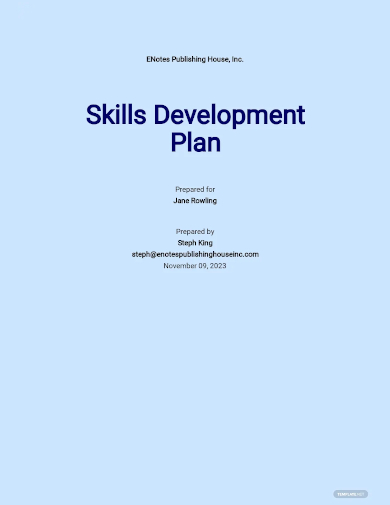
2. Employee Skills Development Plan Template
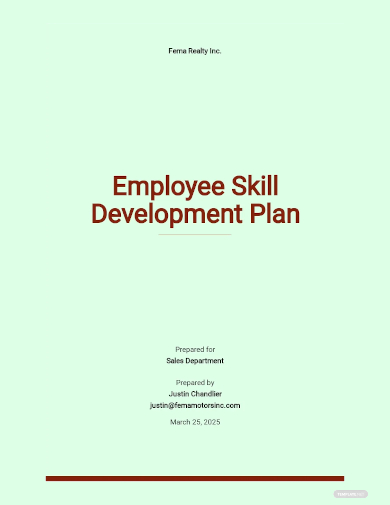
3. Skills Development Plan
4. Personal Skills Development Plan
5. Skills Development Training Plan
6. Skills Development Project Plan
7. Job Skills Development Plan
8. Sample Skills Development Plan
9. Student Skills Development Action Plan
10. Skills Individual Development Plan
11. Basic Skills Development Plan
To begin with, it is geared at businesses, who can choose which of their staff will receive training based on their goals and abilities. The law stipulates, however, that this option may not be made based on discriminatory factors such as ethnic background, family circumstances, or labor union activities. Furthermore, the strategy applies to all businesses, regardless of their size. This new change is intended mostly for employees. The employer may require his employee to participate in training, in which case the employee will be unable to reject. Any rejection could be interpreted as professional misconduct, which could result in dismissal if necessary.
In contrast, an employee may request training from his or her company by demonstrating his or her need, for example during his or her yearly professional interview. In this scenario, the law imposes no procedure; the employer is free to accept or reject the training as he sees fit.
Knowing What Skills To Develop
Knowing what skill to work on is just as important as learning that new talent in making a meaningful strategy. Identifying your own skills gaps and understanding what the market is searching for are two of the finest places to start when determining the correct item to focus on.
- Self-assessment – Organize your tangible knowledge into three categories: tools, abilities, and tasks. This is an easy approach to evaluate yourself. Each of these categories blends into the others, giving you a place to start mapping out skill relationships and areas for improvement.
- Identify the skills that are in-demand – While learning new tech skills for the sake of learning new abilities can be beneficial, your boss will want to see how your skill development contributes to the company’s goals. Simply talking to your manager and asking for candid feedback is an excellent method to figure out what to work on.
- Consult your peers – The best sources of information are frequently right in front of your eyes. Inquire of your team’s top performers what skills they can share with you and what resources they used to improve those skills. Offer your time to assist them with work outside of your normal responsibilities so you can gain hands-on experience with equipment you might not normally utilize.
FAQs
How is the training going?
Once the training has been agreed upon by both the employer and the employee, the latter is required to adhere to it religiously. The training is treated as a normal part of the employee’s job, which means that the employee will keep his or her regular working hours and will not be allowed to be absent without justification or return to work before the training is completed. During training, the individual is compensated and socially protected in the same way that he would be if he were on the job. The cost of the training, as well as any catering or lodging expenses incurred as a result of the training, is entirely covered by the employer.
What happens after the training?
The training organization delivers a certificate to the employee at the conclusion of the training delivered as part of a company’s skills development strategy. After that, the person can return to his or her workstation. The employer is under no obligation to recognize the new abilities that his employee has gained, which means that the latter will not automatically be promoted or given a raise in income.
If you want to see more samples and formats, check out some skills development plan samples and templates provided in the article for your reference.
Related Posts
FREE 10+ Leadership Action Plan Samples
FREE 10+ Development Action Plan Samples
FREE 10+ Employee Career Development Plan Samples
FREE 5+ Comprehensive Training Plan Samples
FREE 5+ Apprenticeship Training Plan Samples
FREE 6+ Sample IT Project Plan
FREE 4+ Training Management Plan Samples
FREE 22+ Sample Training Plan
FREE 11+ Personal Plan Samples
FREE 10+ Employee Development Plan Templates
FREE 10+ Training Reimbursement Agreement Samples
FREE 10+ School Development Plan Samples
FREE 10+ Productivity Skills Samples
FREE 10+ Productivity Skills Samples
FREE 3+ Employee Training Proposal Samples

